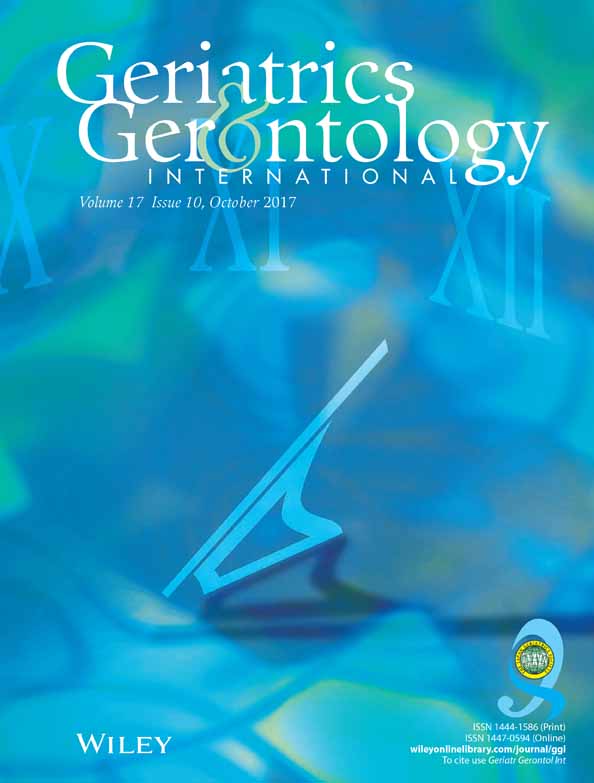Association between the older adults’ social relationships and functional status in Japan
Abstract
Aim
Previous studies have shown that social relationships positively contribute to the functioning of older adults. However, the particular aspects of social relationships that are most predictive remain unknown. Consequently, the current study aimed to clarify what elements of social relationships impacted the maintenance of functioning among older adults.
Methods
The present study used baseline data collected in 2011, and follow-up surveys were carried out 3 years later. Participants included individuals aged 65 years or older who lived in a suburban community in Japan. A total of 434 participants met inclusion criteria for the study and were included in analysis. The Index of Social Interaction measure consists of five subscales (independence, social curiosity, interaction, participation and feeling of safety), and was used to assess the multiple elements of social relationships.
Results
After controlling for age, sex, disease status and mobility in 2011, the results showed that the social curiosity subscale was significantly associated with functional status after 3 years (OR 1.29, 95% CI 1.02–1.63). Other Index of Social Interaction subscales were non-significant.
Conclusions
The current study suggests that interaction with environment and multifaceted social relationships have the strongest impact on functional ability for older adults in Japan. Geriatr Gerontol Int 2017; 17: 1522–1526.




